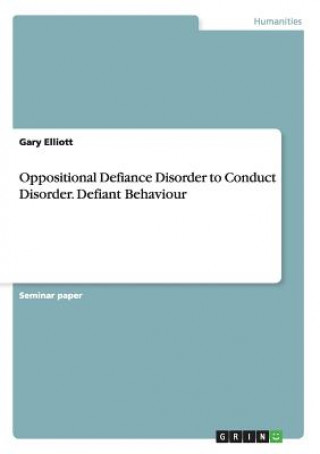
Kod: 02777773
Oppositional Defiance Disorder to Conduct Disorder. Defiant Behaviour
Autor Gary Elliott
Seminar paper from the year 2010 in the subject Psychology - Clinic and Health Psychology, Abnormal Psychology, Atlantic International University, language: English, abstract: It may be accepted that at some point in a child s lif ... więcej
- Język:
 Angielski
Angielski - Oprawa: Miękka
- Liczba stron: 28
Wydawca: Grin Publishing, 2014
- Więcej informacji o książce

37.73 €
Zwykle: 38.46 €
Oszczędzasz 0.73 €

Dostępna u dostawcy
Wysyłamy za 15 - 20 dni
Zobacz książki o podobnej tematyce
Bon podarunkowy: Radość gwarantowana
- Podaruj bon o dowolnej wartości, a my się zajmiemy resztą.
- Bon podarunkowy dotyczy całej naszej oferty.
- Możesz wydrukować elektroniczny bon z e-maila a następnie przekazać go obdarowanemu.
- Ważność bonu wynosi 12 miesięcy od daty wystawienia.
Więcej informacji o Oppositional Defiance Disorder to Conduct Disorder. Defiant Behaviour
Za ten zakup dostaniesz 95 punkty
 Opis
Opis
Seminar paper from the year 2010 in the subject Psychology - Clinic and Health Psychology, Abnormal Psychology, Atlantic International University, language: English, abstract: It may be accepted that at some point in a child s life, they will display oppositional and defiant behaviour (Riley, 1997). When do the occasional rule-breaking, the sulking and whining, and the fits and tantrums become a cause for concern?§§In the course of this paper I will seek to clearly define the characteristics of oppositional defiant disorder and its more severe cousin, conduct disorder. I will expound on the areas of symptoms, causes and co-morbidity, and delve into the appropriate treatment and potential for rehabilitation of a child or teenager who may be suffering with either of these disorders.§§2. Definitions§§Oppositional defiant disorder (ODD) can be characterized by a hostile, negative and argumentative behaviour pattern (Sue, Sue & Sue, 1997). It is common place for these children to lose their temper and argue with adults, refusing their requests. A child who is suffering with ODD will refuse to take responsibility for his actions and his behaviour is an exaggerated attempt to show the parent or authority figure that they have no control over him (Riley, 1997). Rutherford and Nickerson (2010) believe that defiant behaviour among children and teenagers is becoming more prevalent.§§Conduct disorder (CD) can be characterized by repetitive and persistent social behaviour that violates the rights of others, or violates norms and rules that are appropriate for their age (McIntosh & Livingston, 2008). Conduct disorder includes behaviour such as bullying, lying, cheating, fighting, destruction of property, arson, assault, rape, truancy and cruelty to animals and people (Sue et al., 1997). It is quite evident that conduct disorder is a more severe behavioural condition than oppositional defiant disorder.§§If the characteristics of both disorders mentioned here seem rather similar, they should. Is it reasonably to assume that there is some kind of connection between them?§§2.1 Interrelatedness§§According to the American Psychiatric Association (1993), the behaviour associated with oppositional defiant disorder does not involve the more serious violations of the rights of others in the manner in which it is displayed in conduct disorder. The characteristics do seem to overlap, and for this reason it is noted that it is difficult to separate oppositional defiant disorder from milder forms of conduct disorder and the normal developmental difficulties that can occur in...
 Szczegóły książki
Szczegóły książki
Kategoria Książki po angielsku Society & social sciences Psychology
37.73 €
- Pełny tytuł: Oppositional Defiance Disorder to Conduct Disorder. Defiant Behaviour
- Autor: Gary Elliott
- Język:
 Angielski
Angielski - Oprawa: Miękka
- Liczba stron: 28
- EAN: 9783656672272
- ISBN: 365667227X
- ID: 02777773
- Wydawca: Grin Publishing
- Waga: 56 g
- Wymiary: 149 × 210 × 9 mm
- Data wydania: 16. June 2014
Ulubione w innej kategorii
-

Oxford IB Diploma Programme: Psychology Course Companion
70.54 € -

Aion
37.43 € -4 % -

On Killing
17.10 € -25 % -

Atkinson and Hilgard's Introduction to Psychology
78.29 € -

Dark Psychology 101
19.51 € -

Psychology, Theology and Spirituality
21.02 € -24 % -

True Hallucinations
20.22 € -28 % -

Notes on Grief
7.44 € -25 % -
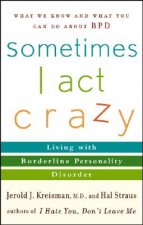
Sometimes I Act Crazy - Living with Borderline Personality Disorder
14.78 € -26 % -

Psychology
89.35 € -

Crazy Like Us
11.36 € -27 % -

Thalassa
59.97 € -

Psychological Types
33.90 € -
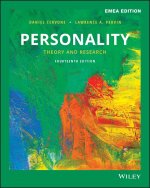
Personality
68.22 € -

Finding Meaning in the Second Half of Life
16.49 € -17 % -

Somatic Internal Family Systems Therapy
21.22 € -17 % -

Psychology and Alchemy
39.74 € -

12 Rules for Life
26.26 € -10 % -

Psychology of Kundalini Yoga
17.60 € -28 % -

Man Who Mistook His Wife for a Hat
11.36 € -22 % -

Trauma-Sensitive Mindfulness
40.04 € -4 % -

Play
15.89 € -16 % -

Silent Guides
13.27 € -28 % -

How to Think Like Leonardo da Vinci
15.89 € -24 % -

12 Rules for Life
22.53 € -19 % -

Heroine's Journey
15.89 € -20 % -

Mindfulness, 25th anniversary edition
14.98 € -25 % -

The Evolution of Desire
16.70 € -20 % -

Power of Attachment
14.58 € -30 % -

Human Tuning Sound Healing with Tuning Forks
20.32 € -2 % -

Visual Intelligence
17.40 € -3 % -

Retrain Your Brain: Cognitive Behavioural Therapy in 7 Weeks
19.61 € -18 % -
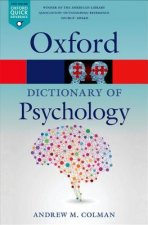
Dictionary of Psychology
17.30 € -18 % -

Collected Works of C.G. Jung, Volume 9 (Part 2): Aion: Researches into the Phenomenology of the Self
26.36 € -19 % -

Unfuck Your Brain
13.68 € -14 % -

1001 Solution-Focused Questions
32.19 € -4 % -

Phototherapy Techniques
37.83 € -

The Hope Circuit
17.30 € -27 % -

Triggers
16.19 € -28 % -

Living an Examined Life
14.18 € -25 % -
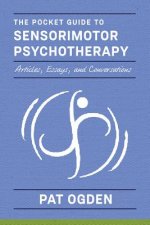
Pocket Guide to Sensorimotor Psychotherapy in Context
32.19 € -4 % -

Right Body for You
19.51 € -24 % -
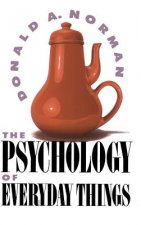
Psychology Of Everyday Things
37.73 € -

Man Enough
19.11 € -22 % -

Leaving My Father's House
27.46 € -22 % -

Degree in a Book: Psychology
22.03 € -8 % -

Hikikomori
21.53 € -10 % -

ANATOMY OF HUMAN DESTRUCTIVENESS
25.45 € -14 % -

Stuff of Thought
14.28 € -22 %
Osobní odběr Bratislava a 2642 dalších
Copyright ©2008-24 najlacnejsie-knihy.sk Wszelkie prawa zastrzeżonePrywatnieCookies






 Vrácení do měsíce
Vrácení do měsíce Zdarma od 49.99 €
Zdarma od 49.99 € 02/210 210 99 (8-15.30h)
02/210 210 99 (8-15.30h)